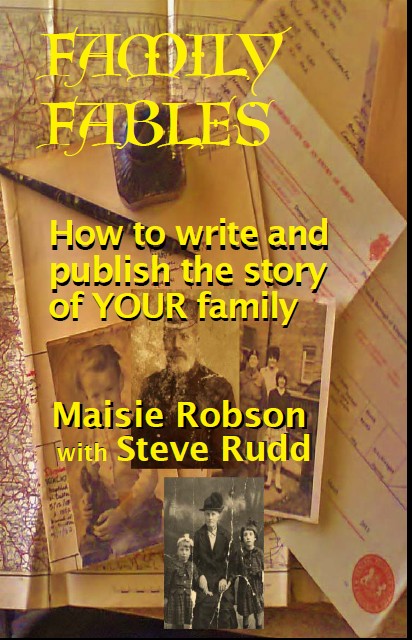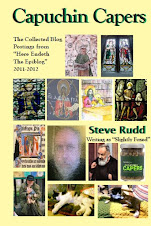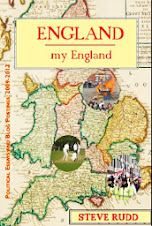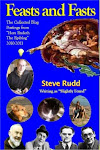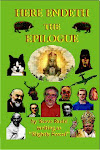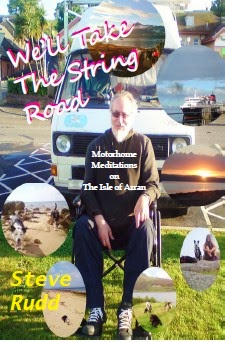
It has been a busy week in the Holme Valley. Or so I have been told. Here, in hospital, it has been largely warm and boring. Rather like a desert island or a luxury cruise with no view and no palm trees. Unfortunately, all of the urgent tasks I brought in with me are now either stuck or exhausted, and everything urgent which needs doing now resides on the big computer at home, awaiting my return.
In fact, several urgent things await my return home, starting with the weather. Apparently, one day last week, it was so cold in our kitchen, Debbie was sitting there in front of the stove, with her coat on, and her hood up, and she could still see her own breath, apparently. So, going home is a potential challenge in many ways.
Tiggy and Kitty have been regularly joining Debbie on the bed, and inter-species co-operation has apparently resulted in shared body-warmth, although even this has had to be re-inforced by the presence of Jim, the trusty hot-water-bottle. I don’t know how Zak and Freddie are reacting to the current snowfall. Earlier on this year, when we had all those weeks and weeks of freezing weather, or so it seemed, Zak ran about in it, barking (in many ways, as dogs go, he is actually completely barking) but poor Freddie, being a small terrier and only about 9 inches off the ground, suffered with the ice and snow adhering to his chest fur, poor wee dote.
So, this year, Granny has said the search is on for anyone who can knit him a coat that will go round his underneath as well. She has in mind some sort of tubular affair, with holes for his legs, and made out of that oily wool that fishermens’ guernseys are made of. I suggested to her that she should go the whole hog, and get someone to make him one with the “pattern” of the nearest port (probably Hull or Grimsby). All of the fishing ports up the east coast used to have their own design of “gansey” as they were known. The purpose was twofold; to uphold their loyalty to their own home port in the fierce rivalries that ensued between ports over such things as catches, and also a more sad, practical use, in that if an unidentified body was washed up, the gansey at least told the discoverers the port of origin of the unfortunate victim.
It remains to be seen whether Freddie will get his dog-jersey, or indeed if the weather will continue to make such garments necessary. I doubt it will be in place before I get home. If it isn’t, perhaps we could ask the lucky constructor if she (I assume it will be a she) will do a double-or-quits offer, and knit me one, as well. It could even be just a larger version of Freddie’s, a knitted tube with holes for my arms and legs. Who knows, it might catch on!
As you can see from the way my mind is wandering, I have a lot of time on my hands at the moment in hospital. As I said, all the urgent tasks which accompanied me are now done, all I am doing is marking time, literally (in the standing hoist where I am learning to walk again) and metaphorically, in that I am now working on next year’s projects. And yet I feel strangely unsettled, stirred up, still, but without knowing why.
I am like some ageing knight of the shires, who sees his old armour hanging in the hall and gathering dust, but knows somehow that it will need to be taken down, polished, and used maybe one more time, although the actual call has not yet come, and he knows not where the battlefield will be.
At this time of the year, the shortest day, the Solstice, assumes a special significance for me. It marks a turning point in the year, midwinter, as far as I am concerned. After that, there is a brief spell of rest and feasting, and then it is time to strap on the armour, take up the shield, and set forth on the quest of 2011, whatever that may be. It would be much easier if, when God calls you to do something, he left an intelligible message, instead of just a holy post-it saying “call me back”.
“Midwinter” also makes me think of snow, and “In the Bleak Mid Winter”, but also of T. S. Eliot’s lines on Little Gidding about “Midwinter spring is its own season”. I feel at the moment as though I am in Midwinter Spring, suspended between one year and the next.
But now, for now, it is Advent, and there is a reason to celebrate. Two reasons, if I get home in time for Christmas. One of the things that has sustained me in this long sojourn in this place, has been the presence of friends and family, both those who have actually visited in person, and those who have kept in touch via the web. In fact, without the internet and the laptop, with its trusty dongle, I would have been so isolated, I would truly have feared for my sanity. The web allows us to pull together a community around us in the same way that the Ferrar family did in the 1630s in real life. In fact, in many ways, I find the distinction between real life and the web is increasingly irrelevant, as people cross the borders from one to the other. When Chief Seattle said in 1855 that:
“Humankind has not woven the web of life. We are but one thread within it. Whatever we do to the web, we do to ourselves. All things are bound together. All things connect.”
He was of course speaking of the web of nature, and the way all things in it depend on all other things. However, his words are strangely prescient for the online age. Nicholas Ferrar, founder of the original Little Gidding community, also recognised the value of friendship and community, when he wrote to his cousin Arthur Woodnoth on 10th May 1630:
“Do not interrupt that web of friendship which I hope might otherwise prove a pattern in an age that needs patterns”
I have certainly felt the web of friendship, especially when my internet message board postings about my lack of protein led to fellow message board users, bearing parcels of protein-rich food, appearing at my bedside. It would be interesting to attempt a community like Little Gidding today, although of course both the original community and the 20th century attempt to revive the ideal were not entirely successful.
Perhaps that is what I am being called to do, although if so, I feel certain Big G has dialled a wrong number, as our house is rather smaller than the Manor at Little Gidding, and we don’t have a church in our back garden, and these days the planning department are a lot shirtier than they were back in the 1630s. The community at Little Gidding only worked, I think, because of the exercise of compassion and support, cutting people a bit of slack, and giving them the benefit of the doubt if they seemed to be having a hard time. Until recent years, these rather “British” qualities used to be prevalent in society at large. Perhaps it would be a good idea if we could inculcate them once again, then we might justifiably claim to have created “The Big Society”.
I have been inside the church at Little Gidding. It is barely longer or wider than a railway carriage. On a winter’s evening, at evensong, say on the feast of Nicholas Ferrar on 4th December, you could imagine the entire household at prayer, crammed into the tiny pews. Their breath would have been streaming in the cold as they crossed the garden from the house, summoned by the single bell. Their rosy faces would have been soft in the candlelight inside the church, their rustic voices blending in harmony as they chanted a psalm. It must have felt like they were all on board a tiny ship, afloat on the vast ocean of the midwinter night.
What I do intend to do, however, assuming I get home in time, is to have some sort of midwinter feast to give thanks for my physical salvation. A spiritual as well as physical feast, perhaps. Nicholas Ferrar wrote the following during an arduous sea-voyage, but it accurately sums up my own feelings as well:
“If the good Lord be merciful unto me, and bring me safe home again, I will all the days of my life serve Him in His holy Name and exhorting others ; yea, in His tabernacle, and in His holy sanctuary will I serve Him, and shall account the lowest place in His house better and more honourable than the greatest crown in the world.”
I have, in previous years, actually toyed with the idea of clearing out an entire room at home and making a suitable environment for an actual Christmas feast, spreading straw on the floor and procuring from somewhere a refectory table and some benches. Then we could truly sit and feast, while the snow outside lay deep, and crisp, and even. However, even if I do manage to achieve this in real life, and so far, my wife has, very sensibly, always vetoed the idea whenever it comes up, sadly, I fear that the modern-day equivalent to T. S. Eliot (?Simon Armitage) is unlikely ever to write a poem about us!
So, for now, I will take my lead from Hilaire Belloc’s drinking song about winter on the Sussex Downs. I’ll settle me down in Steyning to sing/Of the girls I’ve met in my wandering/And all the things I’ll do in Spring/ Which no man shall deny. I’ll continue to walk past the suit of armour in the hall (I wish we actually had one, both a suit of armour and a hall) We will deck the hall (which in our case we have not got) with boughs of holly, and the door shall stand open for the unexpected guest, the homeless person or the long lost friend, the cat flap will work for the abandoned cat, seeking warmth, food and shelter, there shall be a place by the fire for the unwanted, abandoned, lost dog, and a full bowl for him, or her, with treats; all in the spirit at least, if we can’t afford it yet in the real world, but the webs of the worlds may yet mystically intertwine, and we shall believe that in our imaginary barn, on Christmas Eve, the imaginary oxen are kneeling.
And I am determined of one more thing: this year, there WILL be room at the inn.


